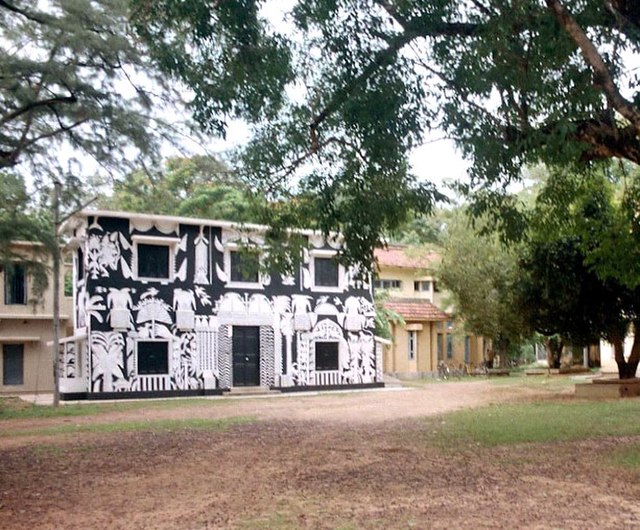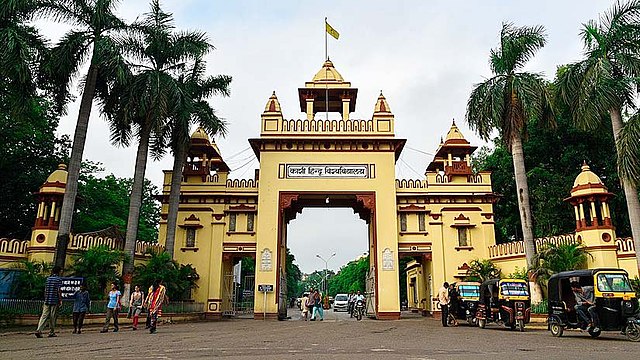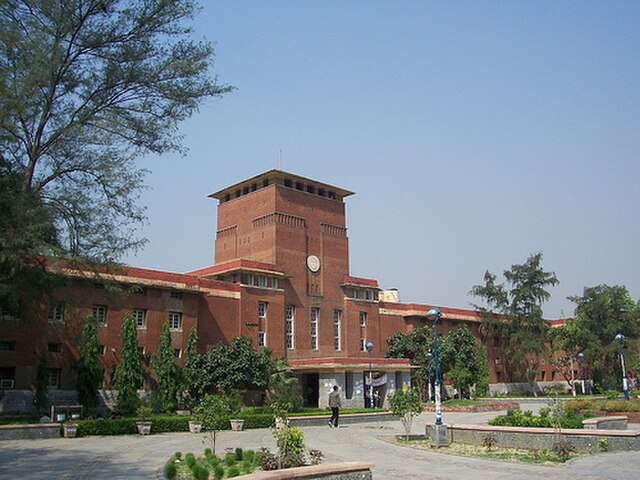Visva-Bharati, is a public central university and an Institute of National Importance located in Shantiniketan, West Bengal, India. It was founded by Rabindranath Tagore who called it Visva-Bharati, which means the communion of the world with India. Until independence it was a college. Soon after independence, the institution was given the status of a central university in 1951 by an act of the Parliament.
A 1971 stamp dedicated to the 50th anniversary of Visva-Bharati University, featuring Rabindranath Tagore and university building.
Upasana Griha (prayer hall) in Santiniketan, built by Debendranath Tagore in 1863.
Kala Bhavan, Santiniketan
Visva-Bharati Central Library
Central university (India)
Central universities in India are public universities established by an Act of Parliament and are under the purview of the Department of Higher Education in the Ministry of Education, except for nine universities which are under the purview of other ministries. In general, universities in India are recognised by the University Grants Commission (UGC), which draws its power from the University Grants Commission Act, 1956. In addition, 15 Professional Councils are established, controlling different aspects of accreditation and coordination. Central universities, in addition, are covered by the Central Universities Act, 2009, which regulates their purpose, powers, governance etc., and established 12 new universities.
Banaras Hindu University, first central university of India (founded and centralised in 1916).
The University of Delhi is one of the seven central universities in Delhi.
Strachey Hall and the university mosque at Aligarh Muslim University, one of the five central universities in Uttar Pradesh







